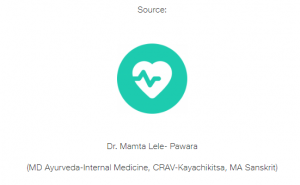[the_ad id=”6076″]
Heartburn, a common digestive discomfort, can sometimes be a sign of a more serious condition known as Gastroesophageal Reflux Disease (GERD). While occasional heartburn is usually harmless; however, chronic and untreated GERD can lead to various long-term side effects that affect your health and quality of life. In this blog, we will explore the facts and figures surrounding these long-term consequences.
Understanding GERD:
GERD occurs when stomach acid frequently flows back into the oesophagus, causing irritation and discomfort. If left untreated, this can result in chronic inflammation and damage to the lining of the oesophagus, leading to a range of complications.
Long-Term Side Effects of GERD:
Oesophagitis:
Approximately 50% of individuals with GERD develop oesophagitis, which is inflammation of the oesophagus.
Persistent inflammation can lead to the formation of ulcers in the oesophagus, increasing the risk of bleeding.
Barrett’s Esophagus:
It’s estimated that up to 10% of GERD patients may develop Barrett’s oesophagus over time.
Barrett’s oesophagus is a condition where the lining of the oesophagus changes, increasing the risk of oesophageal cancer.
Oesophageal Strictures:
About 5-10% of GERD sufferers may develop oesophageal strictures, or the narrowing of the oesophagus due to scarring.
This can cause difficulty in swallowing and may require medical intervention.
Dental Problems:
GERD can lead to dental issues like erosion of tooth enamel due to acid exposure.
Approximately 30-40% of GERD patients experience dental problems.
Asthma and Respiratory Issues:
Studies suggest that GERD may worsen asthma symptoms in about 50% of asthmatic individuals. Aspiration of stomach acid into the lungs can cause chronic cough and recurrent pneumonia.
Chronic Cough:
Up to 41% of chronic cough cases may be linked to GERD.
The persistent irritation of the airways can result in a chronic, nagging cough.
Preventing Long-Term Effects:
Managing GERD is essential to prevent these long-term complications. Lifestyle changes, such as maintaining a healthy weight, avoiding trigger foods, and elevating the head of your bed, can help. Medications like antacids, H2 blockers, and proton pump inhibitors (PPIs) can also provide relief and reduce the risk of complications.
Conclusion:
Gastroesophageal Reflux Disease is more than just a mere inconvenience; it can have lasting consequences on your health. By understanding the facts and figures associated with GERD’s long-term side effects, you can take steps to manage and mitigate the risks. If you suffer from frequent heartburn or suspect you have GERD, it’s crucial to consult a healthcare professional for proper diagnosis and a tailored treatment plan. Don’t let heartburn burn a hole in your long-term health; take action today to protect your future well-being.

